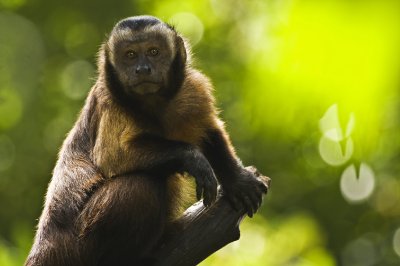
The trial utilizes 2 “equally delicious” foods, Brand A and Brand B. Brand A will be advertised on billboards outside the monkeys’ enclosure, but Brand B will not be advertised. After exposure to the billboard campaign, the monkeys will be offered both brands of food. Keith Olwell, Owner and Chief Creative Officer at Proton, explains, “If they tend toward one and not the other we’ll be witnessing preference shifting due to our advertising.”
The challenge was developing an advertising campaign that could successfully appeal to monkeys. As Olwell described, “They do not have language or culture and they have very short attention spans. We really had to strip out any hip and current thinking and get to the absolute core of what is advertising… We wanted the most visceral approaches.” The outcome? The campaign includes 2 billboards; one features a female monkey with exposed genitals and the Brand A logo, and a second features the alpha male of the Capuchin troop with the Brand A logo. Olwell expects the monkeys to prefer Brand A after being exposed to the campaign. Elizabeth Kiehner, Co-Founder of Thornberg & Forrester, said, “Our motivation is to find out exactly how advertising works. We know it works, we just don’t know the hows or the whys.”
The final results were unveiled at the recent Cannes Lions International Festival of Creativity, but are not yet public.
